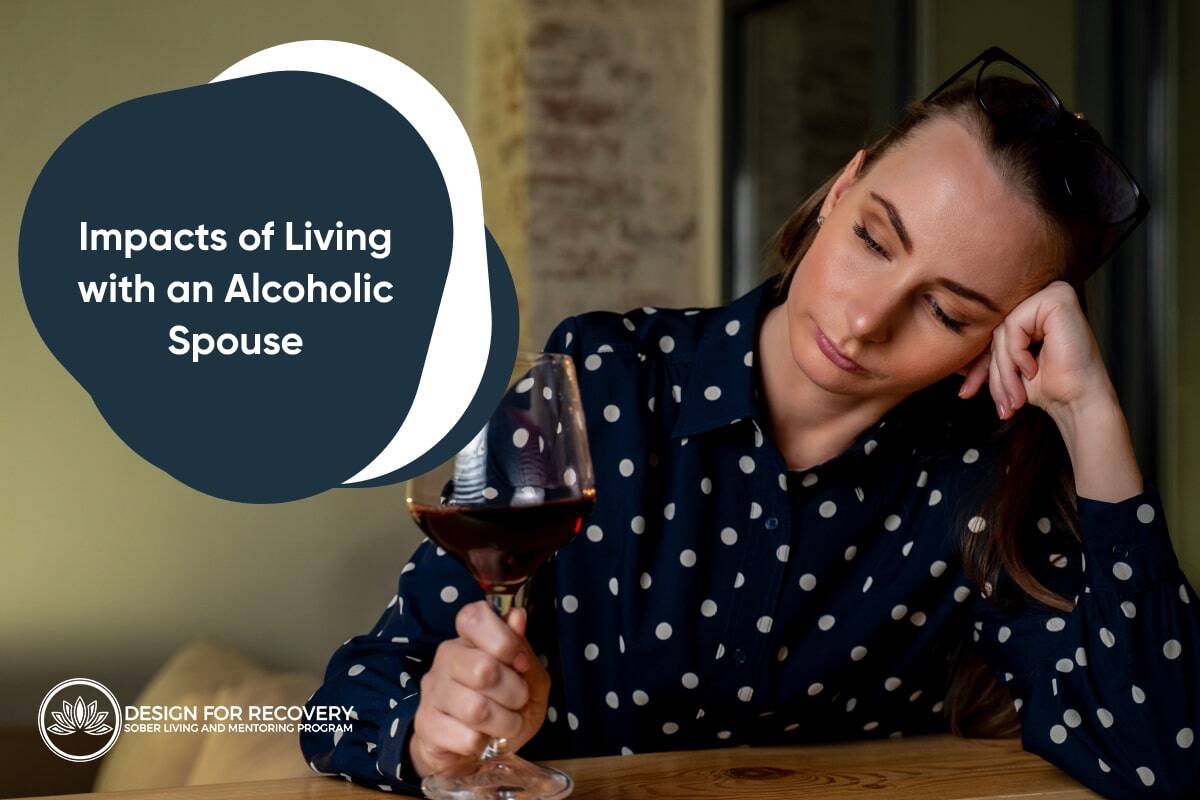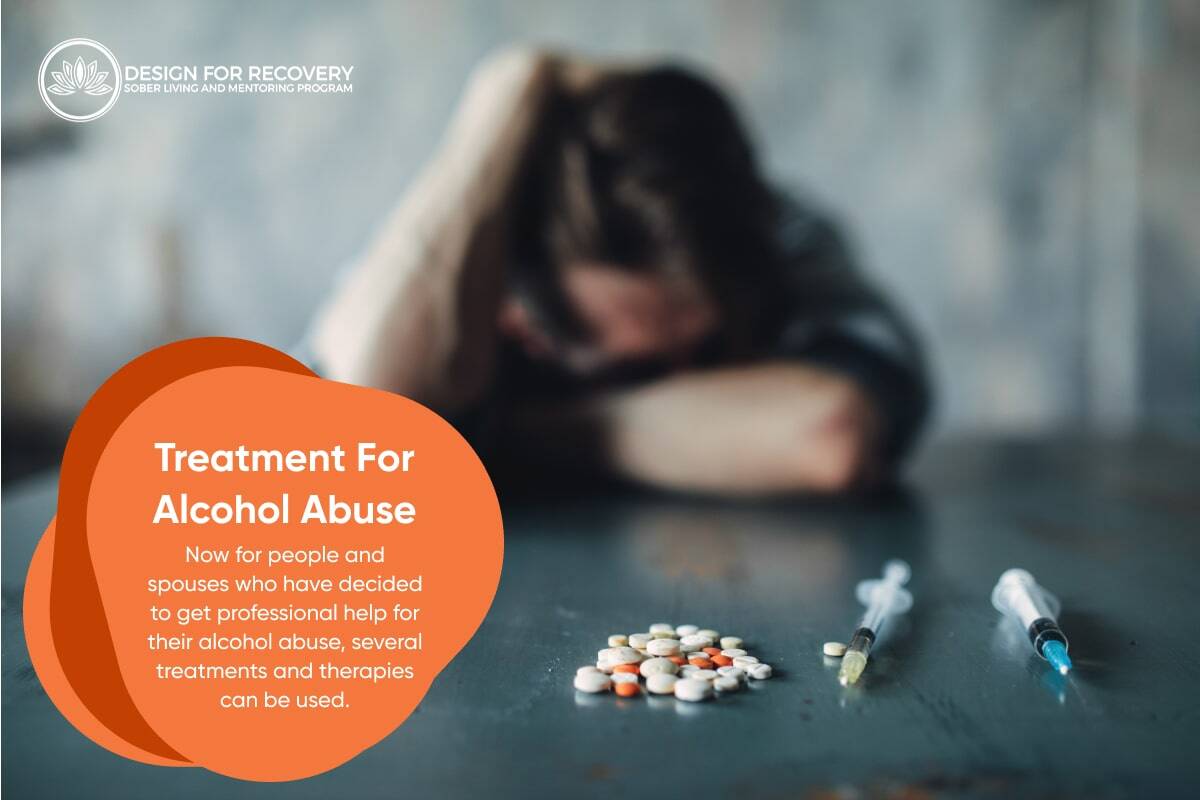In 2022, a study revealed that about 15 percent of married couples reported addiction issues within their relationship, with alcohol use disorder being a leading cause of divorce.
If your wife suffers from a substance use disorder, it can be a heartbreaking and stressful situation to be in. But there are steps you can take to help her cope with her issue and save your marriage. However, there are a few steps that must be taken first.
The most important thing to understand is that alcoholism is a disease, not a moral failing. Your wife’s addiction issues are out of her control and must be treated like any other medical condition.
This article shares educational information and communication tips so you can better understand your wife’s struggles and support her while protecting your own well-being.
Impacts of Living with an Alcoholic Spouse

Living with an alcoholic spouse can have a wide range of effects on your relationship. Knowing its potential impacts and how they can affect you and your wife is important. Here are a few of the possible side effects:
- Stress and Anxiety: Living with an alcoholic spouse can lead to high stress and anxiety levels due to the unpredictable nature of their behavior, leading to severe mental illness or serious mental health disorders. This can also affect your ability to build a trusting relationship.
- Decreased Intimacy: Alcoholism has been linked with decreased emotional intimacy in couples, as it changes how you interact.
- Financial Struggles: Alcoholism can also lead to financial struggles due to increased spending on alcohol or frequenting bars and clubs.
- Conflict: When living with an alcoholic spouse, it can be hard to find common ground in conversations, and arguments may arise more often than usual due to disagreements about drinking habits.
Signs That Show Your Wife Can Be An Alcoholic
Alcoholism is a serious and potentially life-threatening condition. While it can manifest in different ways, there are some signs which may indicate that your wife could be living with alcoholism.

If you find any of the following behaviors regularly occurring in your spouse, then they may need to seek help for their issue:
- Increased consumption – if your wife drinks more often or in larger quantities than usual, this could indicate alcoholism. An increased alcohol intake is never a good idea and should be avoided.
- Changes in behavior – alcoholics may become irritable or aggressive when faced with certain situations. They may also become withdrawn from activities they used to enjoy, such as spending time with friends or family.
- Drinking to cope – if your wife is using alcohol as a way to deal with her emotions, then this could be an indication of alcoholism.
- Hiding drinking habits – if she is secretive about her drinking or tries to hide it from you or others, this could be a sign that she is an alcoholic.
- Neglecting responsibilities – if your wife ignores important tasks such as childcare or work, this could indicate her drinking is out of control.
- Inability to control drinking – if she cannot limit her consumption or stop altogether, this could indicate alcoholism.
- Financial problems – if your wife is running into financial issues due to excessive drinking,
thenthis could be a sign that she should seek help.
It’s important to recognize the signs of alcoholism in your spouse and provide them with support and resources so they can get the help they need. If you are worried about your wife’s drinking habits, you should encourage her to seek professional help.
How To Help Your Alcoholic Spouse
If your wife is struggling with alcoholism, knowing how to help them best can be difficult. Here are some tips for supporting your spouse:

1. Talk To Them
It is important to have an open conversation about the issue. Ask your spouse how they are feeling and their drinking habits so that you can understand them better. Listen without judgment and try to be understanding of their struggles.
2. Set Boundaries
Set clear boundaries and rules regarding alcohol consumption with your wife. Let her know that you are there to support her, but also be firm on the limits that must be followed.
3. Stay Positive
Remember to stay positive and encouraging. Recognize her progress and acknowledge any successes, no matter how small. It is important to be there for your spouse and show them that they are not alone in their journey to recovery.
Call Design for Recovery to Begin Your Healing Journey!
Reach out to our team to discuss sober living options and next steps toward a healthier routine.
4. Be Specific
Be specific when communicating with your wife about her drinking habits. Point out issues and provide concrete examples of behaviors related to alcoholism that you have noticed to help her better understand the seriousness of the situation.
5. Help Set Up A Plan
Support your spouse in exploring options such as counseling with licensed professionals, community support groups, or other resources in your area, while leaving specific treatment decisions to qualified healthcare providers.
6. Seek Professional Help
Encourage your wife to seek professional help from licensed treatment providers or community programs, such as Alcoholics Anonymous or other support groups. Some couples also explore treatment programs together by working with qualified providers in their area.
How To Talk To Your Wife About Her Alcoholism

Before you can take steps to help your wife, it’s important to talk to her about her alcoholism and explain why you want to help. Here are a few tips for having this difficult conversation:
- Be empathetic: Instead of being judgmental or dismissive, express an understanding of how she’s feeling and the struggles she’s going through.
- Listen to her without judgment: It can be hard not to judge or offer solutions, but it’s important for your wife to feel heard and understood.
- Show compassion: Take the time to explain why you’re worried about her drinking habits and how they affect both of you.
- Talk about solutions: Come up with ideas on tackling the issue and discuss possible treatments or interventions to help her cope with her disease.
What To Avoid When Helping Your Alcoholic Wife

When helping your spouse with alcoholism, there are certain things you should avoid. Here are some tips for how to best support your wife:
Self-Blame
Do not blame yourself for your spouse’s alcoholism. Alcoholism is a complex illness that is driven by an individual’s environment and genetics. It is not your fault that they are struggling with this issue.
Enabling
Another thing to be aware of when dealing with an alcoholic spouse is to avoid enabling them. This means avoiding providing financial assistance, giving excuses for their behavior, or allowing them to continue drinking despite their problems.
Contact Design for Recovery Today!
Fill out our quick form to connect with a peer mentor and learn how our sober living community supports accountability, structure, and personal growth in recovery.
Guilt Tripping
Don’t guilt trip your spouse for their alcoholism. It’s not a conscious choice, so making them feel guilty will only harm the relationship and fail to provide effective help. Instead, focus on creating an environment of respect and understanding.
Ignoring Their Behaviors
It’s important not to ignore your spouse’s drinking behaviors. While it may be difficult to confront them about their issues, facing the problem head-on can be an effective way to help them get on a healthier path.
Judging Their Choices
Finally, ensure you are not judging your spouse for their decisions regarding alcohol. You may not understand their choices, but you need to respect their autonomy and recognize that it is up to them to make the best decision for themselves.
Common Alcohol Treatment Options

Professional alcohol treatment follows clinical detox and varies by individual needs, offering structured paths to long-term sobriety.
Treatment professionals commonly recommend these evidence-based approaches after initial stabilization.
- Medical detox safely manages withdrawal symptoms like shakes, sweats, anxiety, and nausea under 24/7 medical supervision.
- Residential inpatient programs provide intensive therapy, group counseling, and life skills training for severe alcohol dependence.
- Outpatient programs deliver flexible counseling and support group access while allowing daily responsibilities.
- Cognitive behavioral therapy helps replace drinking triggers with healthy coping strategies and problem-solving skills.
Medication-assisted treatment reduces cravings when prescribed by physicians alongside counseling. Families benefit from learning these options through Al-Anon support while spouses navigate recovery together. Always consult healthcare providers to match treatments to specific circumstances. Read our guide on supporting alcoholic spouses.
Detox
Detox is the process of removing toxins from the body and may be medically necessary when a person’s alcohol consumption has become dangerous to their health. Detox can take place in an inpatient setting or with outpatient care. In both cases, it involves alcohol withdrawal symptoms such as shakes, sweats, chills, depression, anxiety, fatigue, and nausea that a professional should monitor and manage.
Inpatient Treatment
Inpatient treatment is more intensive care for those suffering from severe alcohol abuse. It often includes individual counseling, group therapy activities, therapeutic recreation, and other strategies designed to help the person understand their problem and how to cope.
Outpatient Treatment
Outpatient treatment is a less intensive form of care that can be done in the person’s own home or in an outpatient setting. This type of treatment includes individual counseling, support groups, and meetings from support organizations.
Other Treatment Options
Many other treatment options are available to those suffering from alcohol or drug abuse, such as medication-assisted treatment, hypnotherapy, and holistic healing practices. Speaking to a healthcare professional about the appropriate course of action for your situation is important.
Finding Treatment Options For Your Wife Near You
Design for Recovery, a reputable sober living home, offers an invaluable resource for individuals battling addiction and their spouses. We emphasize structure, accountability, and community, providing a supportive environment conducive to long-term recovery.
Our structured sober living program focuses on daily routines, accountability, and peer support, encouraging healthy habits and personal growth. This thoughtful approach extends beyond the individual, incorporating family members, especially spouses, into the recovery process.
This approach has significantly improved the chances of a sustained recovery, offering a beacon of hope for those affected by addiction. If you or someone you love is in recovery and needs a structured sober living environment, contact us to learn more about our housing and support.
- Impacts of Living with an Alcoholic Spouse
- Signs That Show Your Wife Can Be An Alcoholic
- How To Help Your Alcoholic Spouse
- 1. Talk To Them
- 2. Set Boundaries
- 3. Stay Positive
- 4. Be Specific
- 5. Help Set Up A Plan
- 6. Seek Professional Help
- How To Talk To Your Wife About Her Alcoholism
- What To Avoid When Helping Your Alcoholic Wife
- Self-Blame
- Enabling
- Guilt Tripping
- Ignoring Their Behaviors
- Judging Their Choices
- Common Alcohol Treatment Options
- Detox
- Inpatient Treatment
- Outpatient Treatment
- Other Treatment Options
- Finding Treatment Options For Your Wife Near You
Begin Lasting Sobriety Now!
Frequently Asked Questions
Yes, it’s possible to live with an alcoholic spouse. However, setting clear boundaries and being firm about them is important without enabling your partner’s behavior. It’s also important to seek professional help for their alcohol treatment.
If your alcoholic partner won’t stop drinking, it’s important to take steps to get her the help she needs. This could involve talking with a healthcare professional or getting her into an inpatient treatment program. You should also consider seeking counseling services to ensure you provide healthy support for your spouse during this difficult time.
Supporting your wife’s recovery include setting boundaries around drinking, attending family therapy sessions, joining a support group for people in similar situations, helping in finding alcohol rehab, and providing emotional support. Make sure to practice self-care and seek counseling services if needed.
The warning signs of alcohol addiction can vary, but some common indicators are an increased tolerance for alcohol, blackouts, withdrawal symptoms when not drinking, and continued drinking despite negative consequences. If you notice any of these signs in your wife, it may be time to seek professional help.
Leonard, K. E., & Eiden, R. D. (2007). Marital and family processes in the context of alcohol use and alcohol disorders. Annual review of clinical psychology, 3, 285–310. https://doi.org/10.1146/annurev.clinpsy.3.022806.091424
Kishor, M., Pandit, L. V., & Raguram, R. (2013). Psychiatric morbidity and marital satisfaction among spouses of men with alcohol dependence. Indian journal of psychiatry, 55(4), 360–365. https://doi.org/10.4103/0019-5545.120557
Marshal M. P. (2003). For better or for worse? The effects of alcohol use on marital functioning. Clinical psychology review, 23(7), 959–997. https://doi.org/10.1016/j.cpr.2003.09.002
Kendler, K. S., Lönn, S. L., Salvatore, J., Sundquist, J., & Sundquist, K. (2016). Effect of Marriage on Risk for Onset of Alcohol Use Disorder: A Longitudinal and Co-Relative Analysis in a Swedish National Sample. The American journal of psychiatry, 173(9), 911–918. https://doi.org/10.1176/appi.ajp.2016.15111373
Bulanda, J. R., Curl, A. L., & Roberts, A. R. (2023). Marital Quality and Alcohol Use among Couples in Mid- and Later-Life. Journal of applied gerontology: the official journal of the Southern Gerontological Society, 42(5), 1068–1077. https://doi.org/10.1177/07334648221143305







Written By
David Beasley